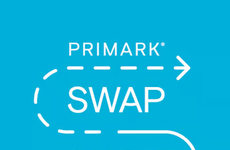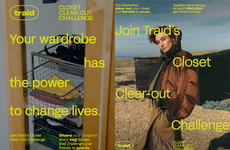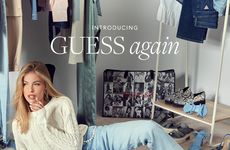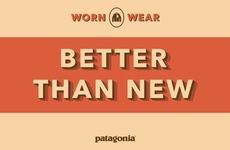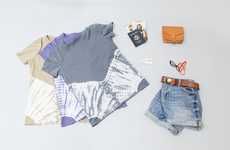
Marks & Spencer Launches a Recycling Initiative 'Shwopping'
leewashington — August 23, 2012 — Eco
References: marksandspencer & youtu.be
Approximately 2 millions tons of clothes are thrown away each year in the UK, with half going to landfills; British retailer Marks & Spencer aims to put an end to this with a new recently launched campaign called 'shwopping.' The idea is to kick start a "buy one, give one" mentality, with customers handing over an unwanted item of clothing for every new one that they buy in the store. The unwanted garments are then resold, reused or recycled by its charity partner Oxfam.
To promote the scheme, Marks & Spencer created a giant union jack using 2,100 unwanted clothes -- the flag measures 20 meters by 10 meters. The clothes then went on to be recycled.
Increasingly, businesses are showing more consideration for the environment. Companies are not only rethinking the way they produce the items they sell, but considering what happens to them once they have been used.
To promote the scheme, Marks & Spencer created a giant union jack using 2,100 unwanted clothes -- the flag measures 20 meters by 10 meters. The clothes then went on to be recycled.
Increasingly, businesses are showing more consideration for the environment. Companies are not only rethinking the way they produce the items they sell, but considering what happens to them once they have been used.
Trend Themes
1. Circular Fashion - Disruptive innovation opportunity: Developing sustainable business models that promote recycling and reusing unwanted garments.
2. Buy One, Give One - Disruptive innovation opportunity: Implementing one-for-one campaigns that encourage customers to donate unwanted items for each new purchase made.
3. Environmental Consciousness - Disruptive innovation opportunity: Creating products and initiatives that prioritize environmental considerations and minimize waste.
Industry Implications
1. Retail - Disruptive innovation opportunity: Introducing recycling programs and charity partnerships to reduce clothing waste in the retail industry.
2. Fashion - Disruptive innovation opportunity: Embracing circular fashion practices to transform the industry and promote sustainable consumption.
3. Charity - Disruptive innovation opportunity: Collaborating with retailers to develop initiatives that combine charitable giving and sustainable practices.
2.6
Score
Popularity
Activity
Freshness



